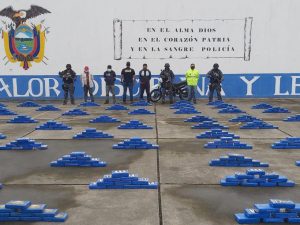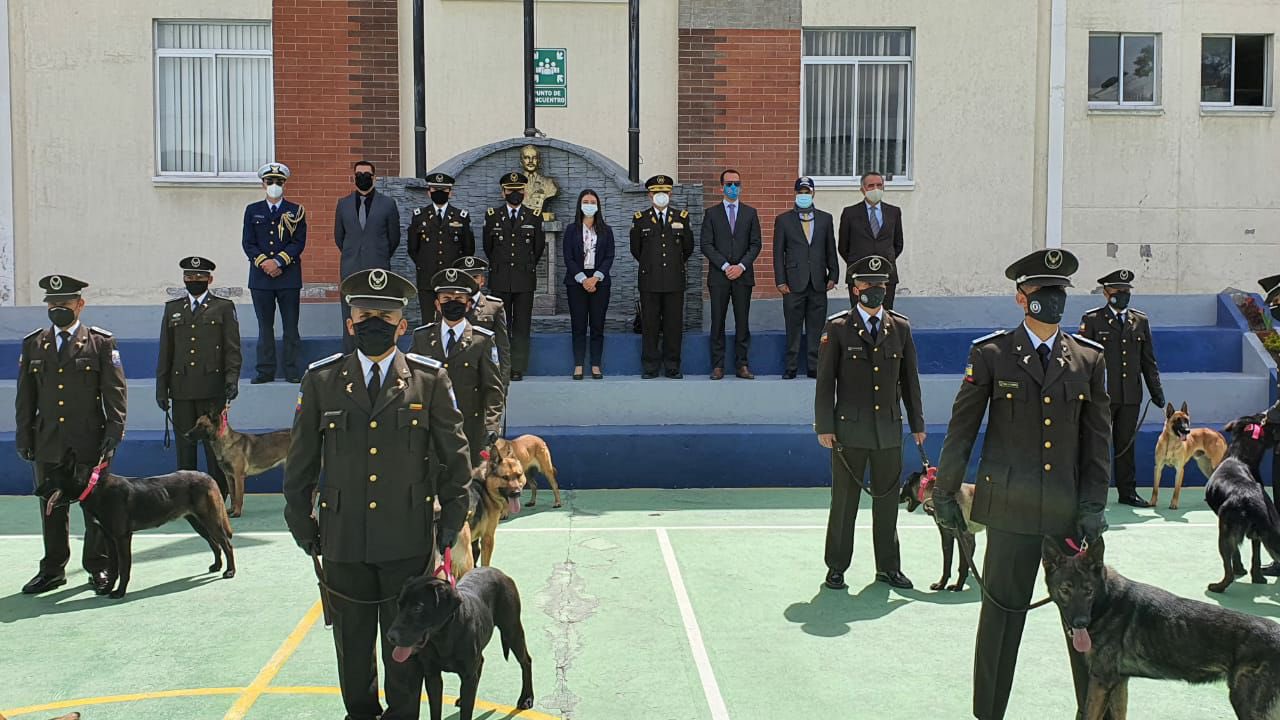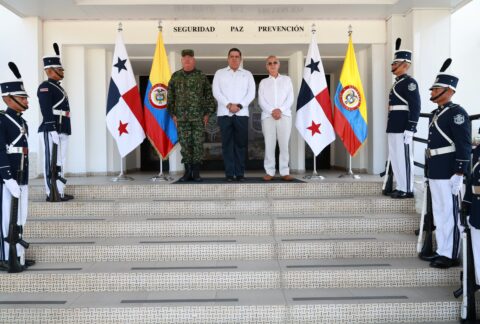The Ecuadorian National Police seized nearly 5 tons of drugs, in operations carried out December 9-13, 2020.
On December 13, authorities seized 1 ton of marijuana in a nightclub in Manabí province, Ecuadorian Minister of Government Patricio Pazmiño said on his Twitter account. Officers arrested an individual, the Ecuadorian newspaper El Universo reported.
A day prior, on December 12, police reported via Twitter that they had arrested four people in Guayaquil and seized 925 kilograms of cocaine bound for Belgium. Authorities found the drug, hidden in bags with cocoa beans, in a boat in Posorja Port, the Ecuadorean newspaper El Comercio said.

In another operation reported on December 11, the police said it had received information about a truck that was transporting a large quantity of alkaloids in the Guayllabamba sector. With this information, officers set up a roadblock operation and intercepted the vehicle, which was carrying 471 kg of cocaine, hidden in the roof.
On December 10, Ecuadorian security forces identified a gang that used rural properties as drug storage centers. During the operation, authorities detained three people and found 37 buried packages containing 925 kg of cocaine.
Authorities intercepted another drug shipment on December 9 in Malta, totaling 612 kg of cocaine hidden in a container that was transporting cooking oil to Colombia, with Libya as a final destination, the Ecuadorean newspaper El Universo reported. That same day, agents seized 751 kg of drugs in different antinarcotics operations in Esmeraldas province, the police reported via Twitter.
Ecuadorian Police Colonel Erik Benítez, national deputy director of Antinarcotics Investigation, told the Ecuadorean news portal Primicias on November 21 that, with more than 120 tons of drugs seized, 2020 will be a record year for his country. “Ecuador is a fertile territory for drug transport, especially because unauthorized crossings are still open on the northern border,” Col. Benítez said.
To confront this problem, Ecuador has signed security cooperation agreements with the United States, and “has strengthened bilateral cooperation with Colombia, Peru, and other countries, to exchange information and carry out joint operations,” the website Seguridad América reported on August 30.
As part of this cooperation, the United States donated 90 sniffer dogs to Ecuador through its embassy in Quito on December 12, the Ecuadorian Ministry of Government reported on its website. In addition, the United States is working on equipping the National Canine Units in Quito and Guayaquil and on acquiring computers, vehicles, and material to train dogs for antinarcotics inspections, at an estimated cost of $1.7 million, the Ministry added.









